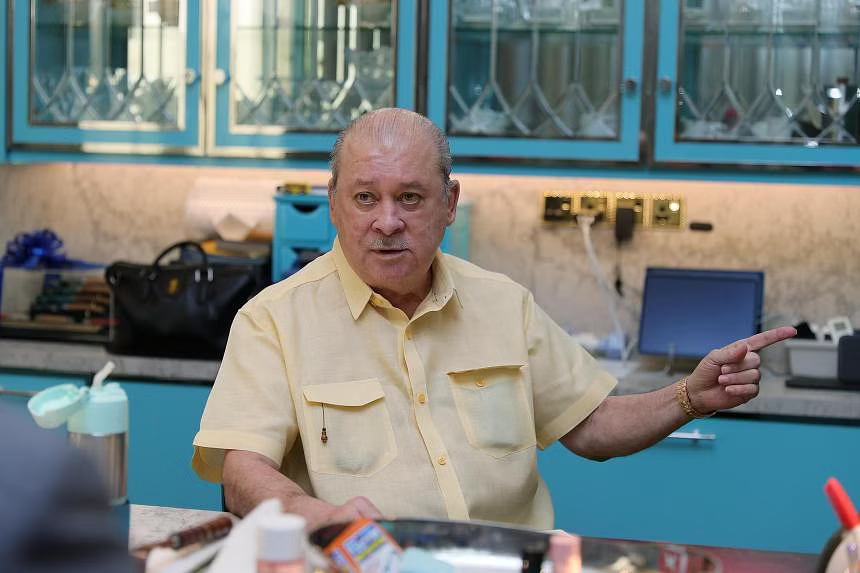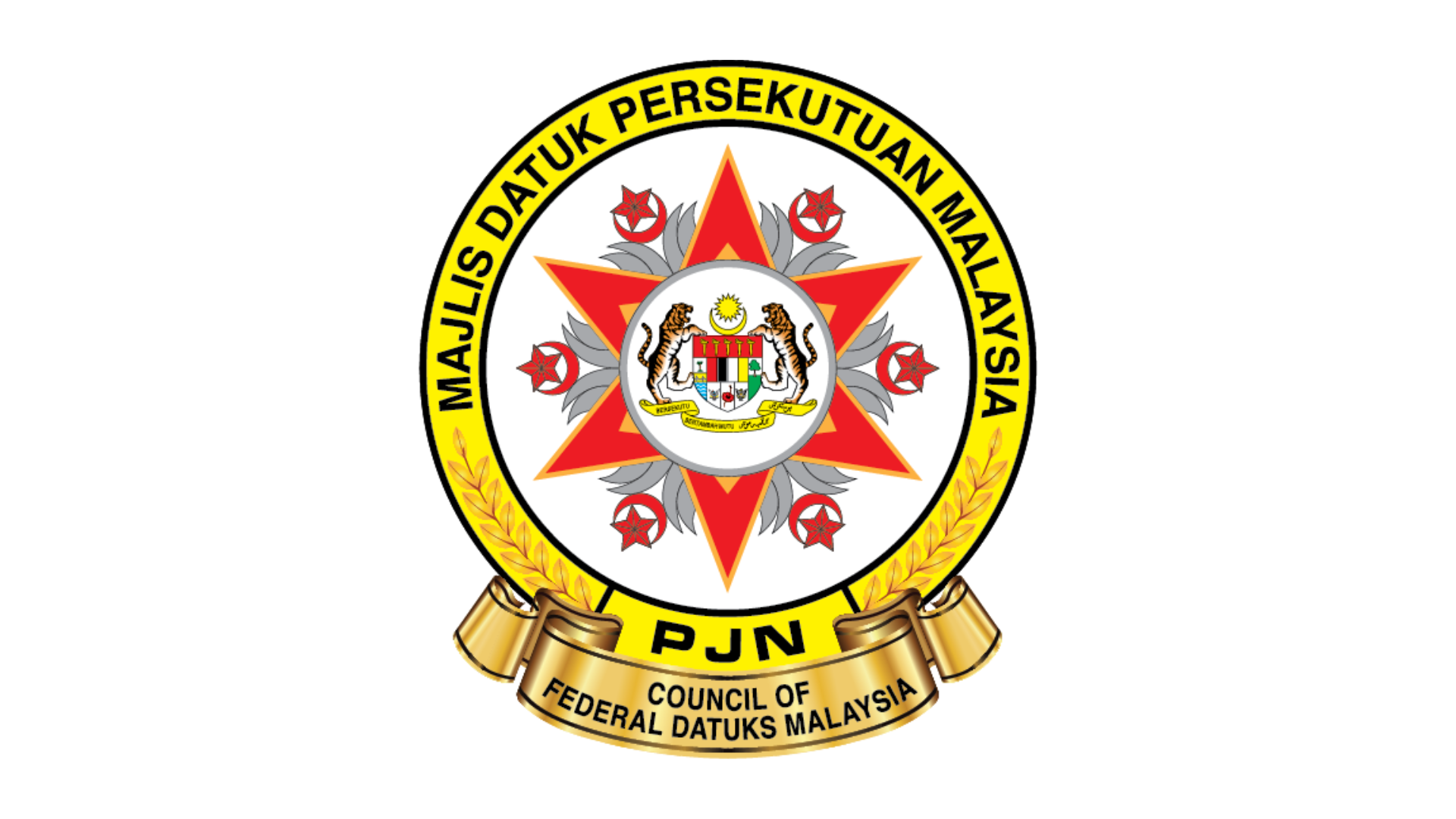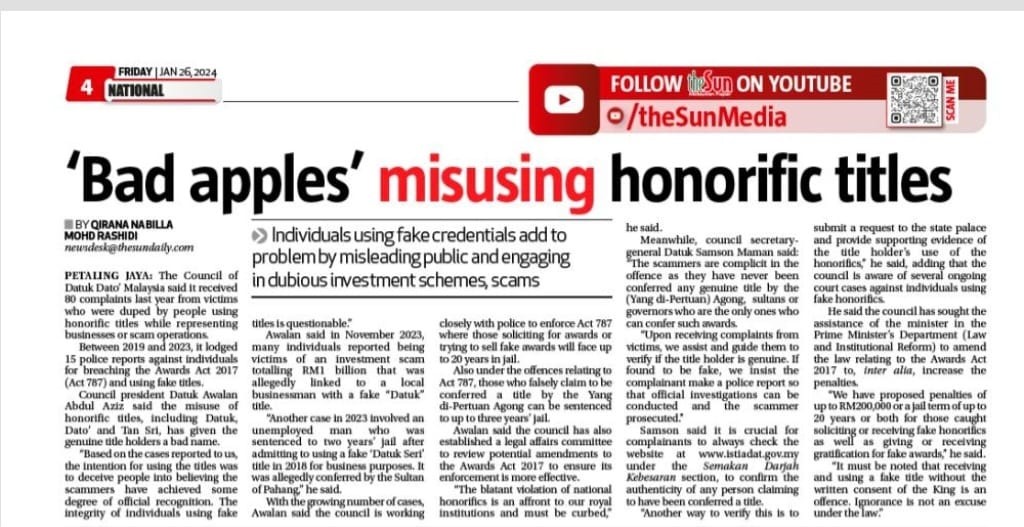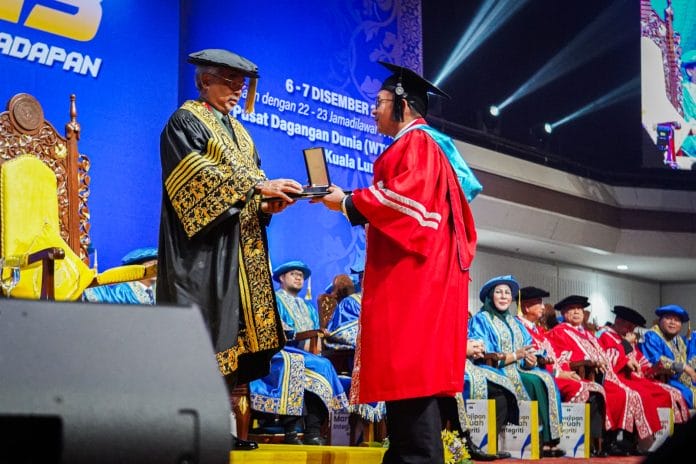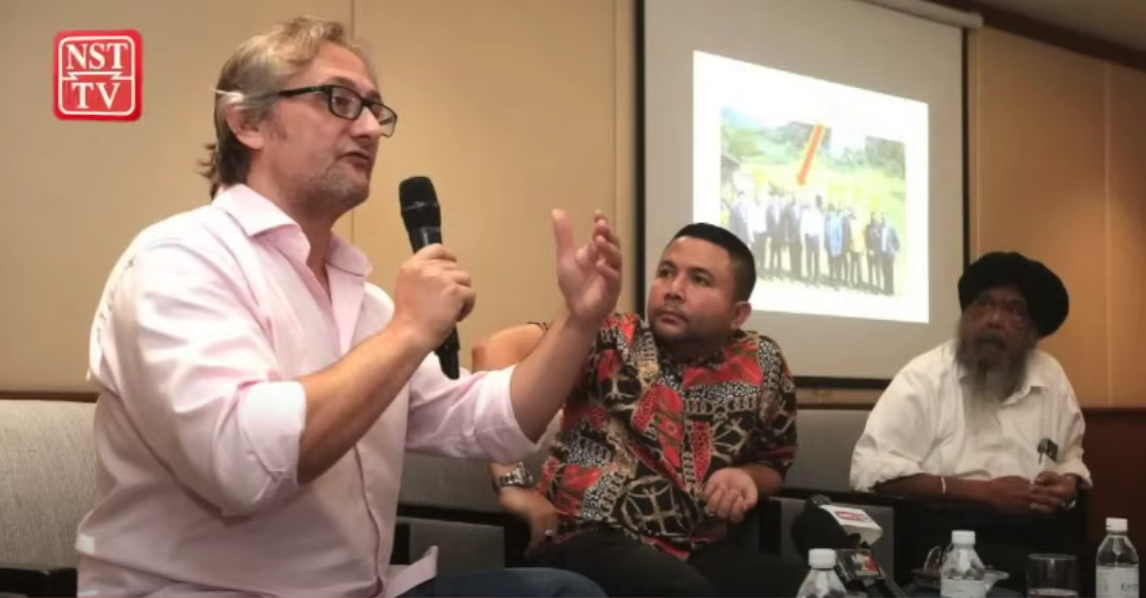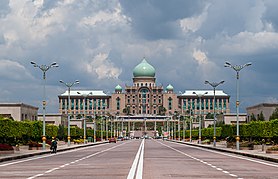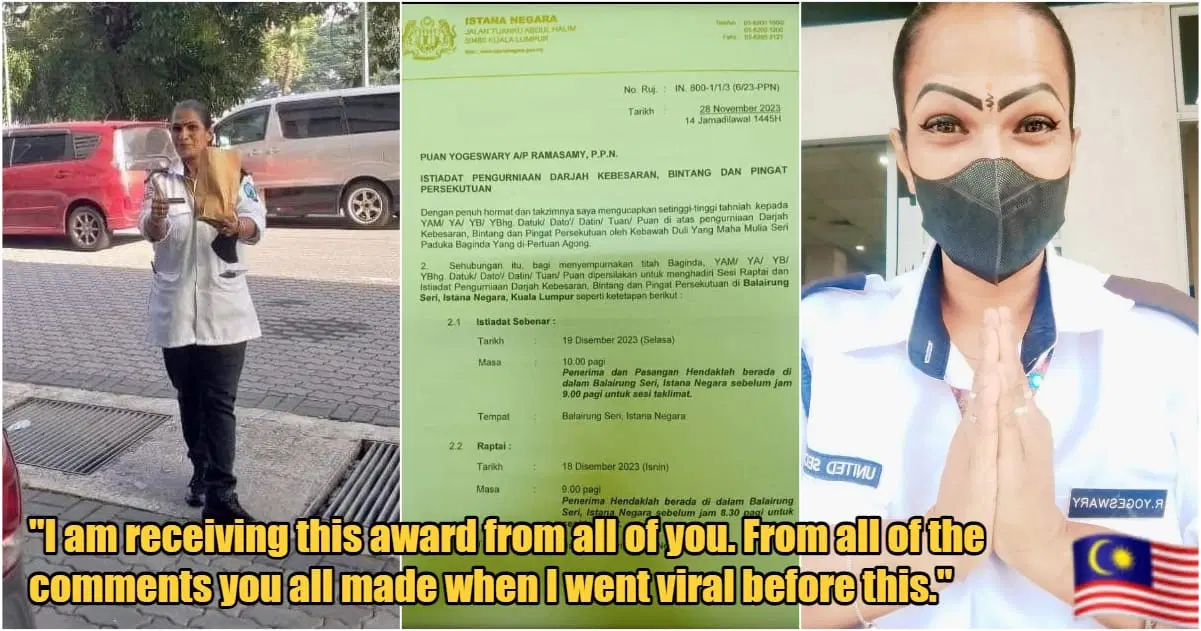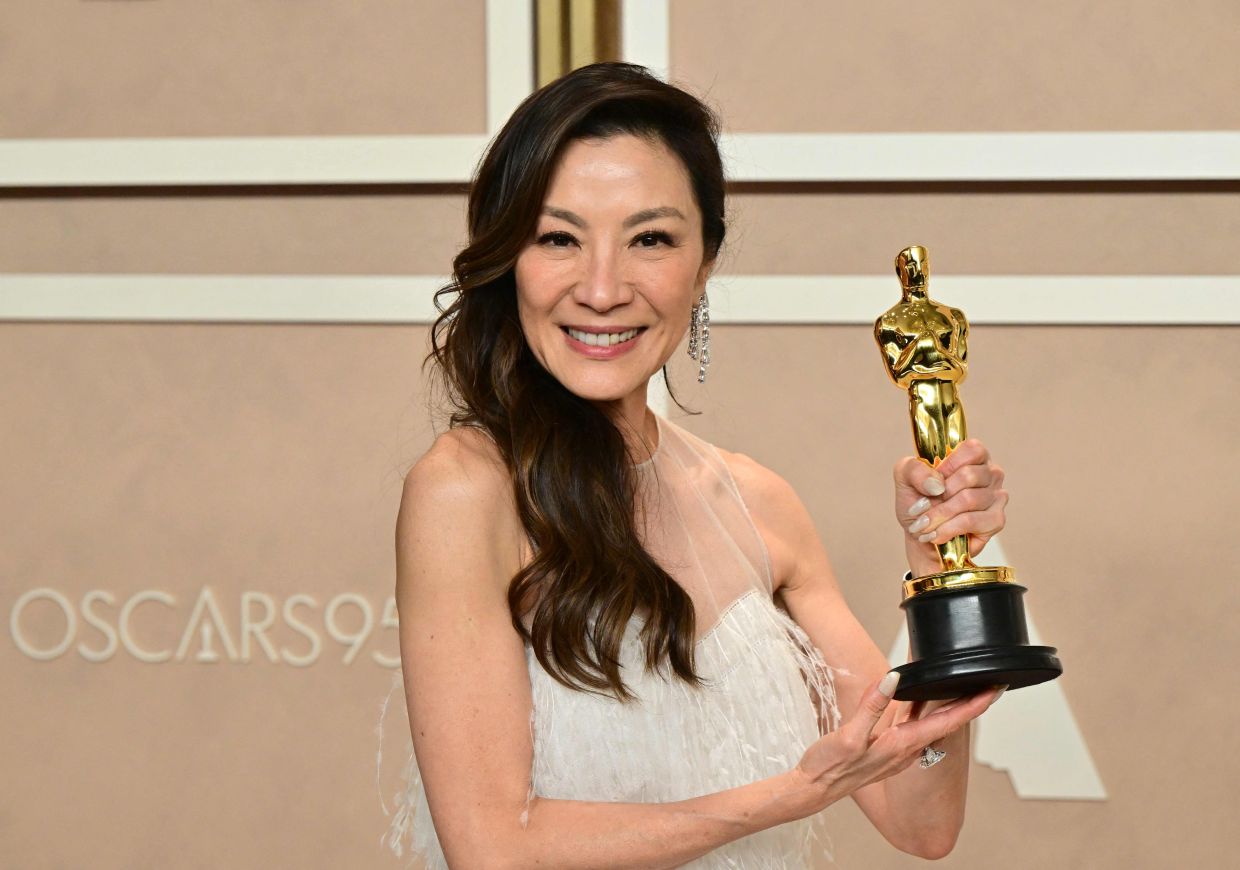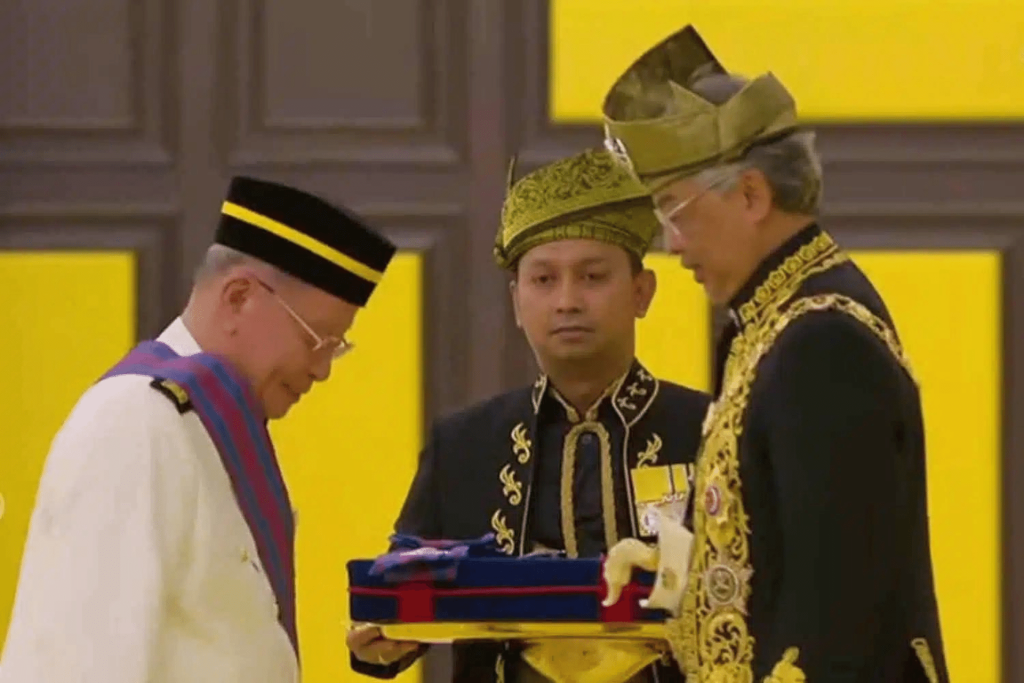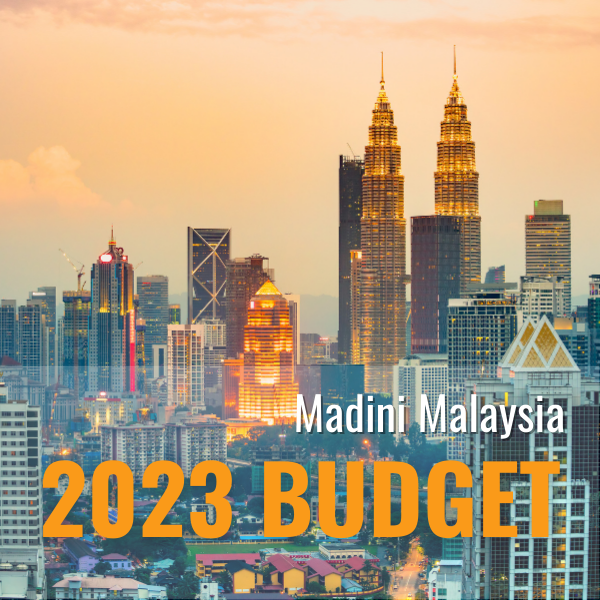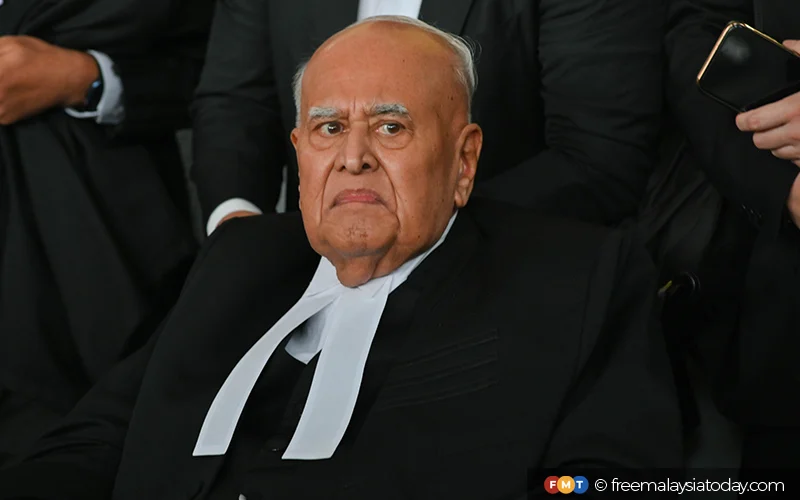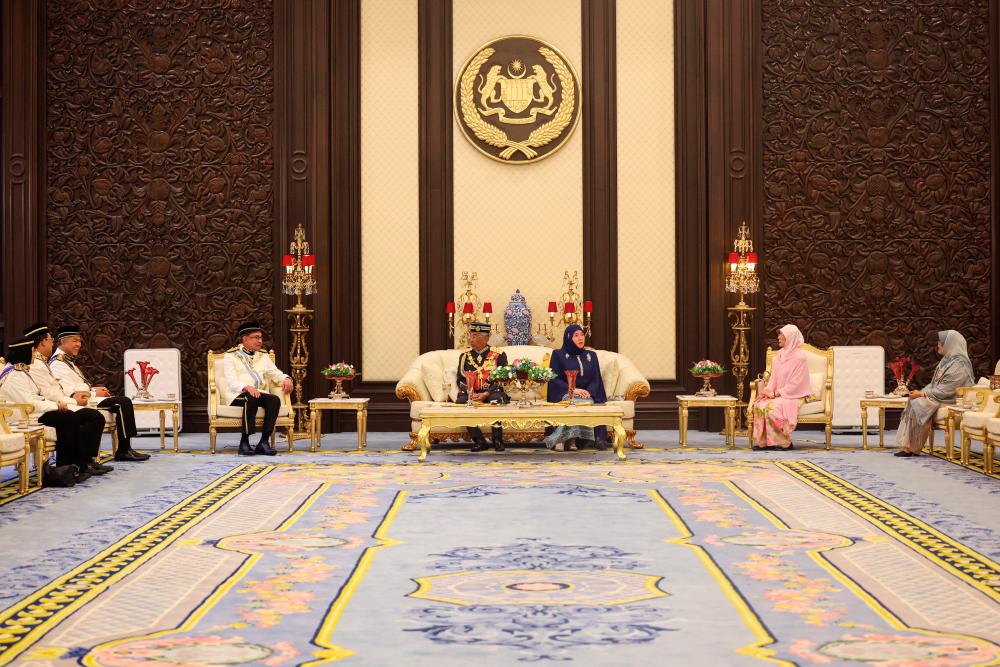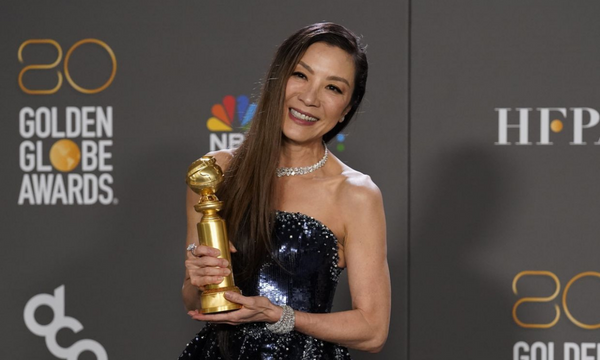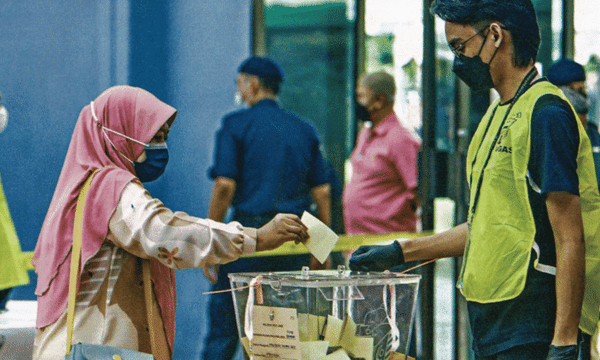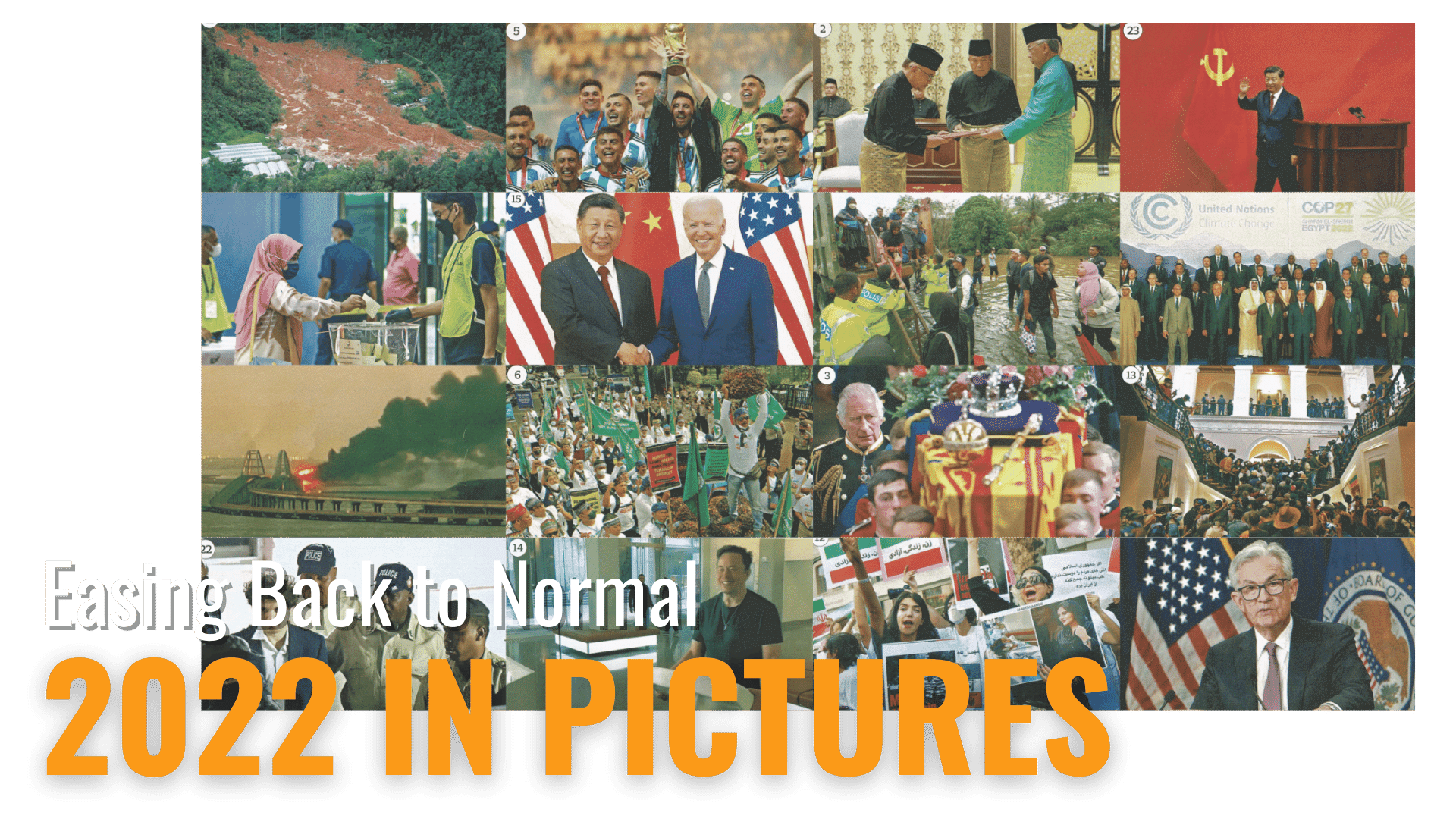By Shannon Teoh @ https://www.straitstimes.com/
Malaysia Bureau Chief
JOHOR BAHRU – Malaysia’s next king wants to revive the high-speed rail (HSR) link project with Singapore that has been put on the back-burner, one of many intended changes that will test the limits of his powers when he is installed as monarch at the end of January.
In an interview with The Straits Times on Nov 23, Sultan Ibrahim Iskandar, the ruler of Johor, said the HSR between Kuala Lumpur and Singapore should also be aligned such that the border crossing is via Forest City, the troubled property development on reclaimed islands in the southern Malaysian state.
While Prime Minister Anwar Ibrahim’s administration has said it is open to reviving the HSR, it will not fund the 350km line last estimated to cost more than RM100 billion (S$29 billion) to build.
Instead, it has welcomed privately backed proposals via an ongoing request for information process, but ST understands that has yet to yield a workable plan.
Sultan Ibrahim, who was elected in October by his fellow royal rulers to succeed Pahang’s Sultan Abdullah Ahmad Shah as king, has ideas on how to get the project back on track.
“I will make it (come back) on,” he insisted, arguing that the line could be funded through a private finance initiative whereby the government pays the contractor to operate the line on a 30-year lease so that it can recoup its costs, before taking ownership of the HSR.
It is not clear how much traction this idea will gain with the government.
ST Asian Insider: Malaysia Edition
“If you stayed to your first proposal, it’s only so much. But because of your on-off-on-off, today it is so much (more),” he said, referring to the initial RM72 billion cost estimate when the rail link was first announced in 2013.
The project was scrapped in 2020, after Malaysia requested that it be postponed in 2018, when its cost was estimated by the government then at RM110 billion.
Singapore’s Acting Transport Minister Chee Hong Tat had said in August 2023 that the Republic “is willing to discuss any new proposal… in good faith, starting from a clean slate” but it has yet to receive any such plan.
Plans for change
During the interview at his private residence, Sultan Ibrahim, 65, also expressed other ideas for his five-year term as Malaysia’s constitutional monarch, including making key institutions such as the judiciary and anti-graft agency answerable to the throne, instead of the executive government currently.
He also intends to have a greater say in evaluating recipients for royal awards, having already scrapped a traditional investiture planned for Federal Territories Day on Feb 1, just a day after he becomes king.
“I’ve cancelled the whole lot,” he declared of the event, which in the 2023 edition saw 164 recipients of royal awards that carry titles such as Datuk Seri and Datuk.
“Give me time. This is my second day in office on Feb 1,” he said. “Let me see the paper three months down the road and why this person should be appointed. What’s the criteria here?”
Pushing these changes, however, would test the limits of his powers as king which, according to the federal Constitution, are largely confined to matters pertaining to Islam and the culture of the Malay majority, and the dissolution of Parliament. Executive power is held by ruling politicians and the civil service.
Hereditary rulers of nine of Malaysia’s 13 states take turns to act as Agong, the supreme head of the federation, whose role for most of the nation’s 66-year history has been largely ceremonial.
Still, royal influence on government has been growing, particularly since 2008 when Barisan Nasional (BN) lost its customary two-thirds supermajority in Parliament for the first time. Ten years later, BN suffered its first general election defeat after 60 uninterrupted years in power.
The current Agong, Sultan Abdullah – who is Sultan Ibrahim’s brother-in-law – broke with convention during the political upheavals of 2020 to 2022 by summoning MPs and party leaders to the palace to determine who should helm the government.
Sultan Abdullah even blocked the government’s plan to declare a national emergency during the Covid-19 pandemic in 2020, after public outcry that the emergency was aimed at suspending Parliament.
The Malay rulers have also influenced other political appointments, including that of Menteri Besar – the head of government equivalent to chief minister in states with a sultan.
In 2022, Sultan Ibrahim rebuffed BN’s choice of Datuk Seri Hasni Mohammad to be reappointed as Johor chief after the coalition swept more than two-thirds of the state legislature seats. Instead, he picked a relative greenhorn, Datuk Onn Hafiz, for the post.
“They made a mistake. Hasni was made to be a poster boy, and all of them signed declarations supporting him. What, you push me to the wall? Within our Constitution, the only person who can decide on the Menteri Besar is the sultan. That’s why I changed it and shocked everybody,” Sultan Ibrahim said.
Known as one of the most colorful and outspoken of Malaysia’s sovereigns, Sultan Ibrahim told ST he was not interested in giving up five years of his life to just be a “puppet king” in Kuala Lumpur, where the national palace is located.
Instead, he plans to use his influence to “make things right” nationally. This includes checking on both the executive government led by PM Anwar and the machinations of self-serving politicians.
“There’re 222 of you in Parliament. There’re over 30 million outside. I’m not with you, I’m with them,” he said, comparing the number of lawmakers in the federal legislature with Malaysia’s population.
“When I hit in my speech, I hit. If not, the MPs behave like monkeys.”
Describing himself as a hands-on person who monitors developments closely, the royal intends to make his presence felt in Kuala Lumpur.
“When I say I don’t want to see you, that’s already a big question why. And I have my own social media team. What I tell the prime minister, I make sure it goes out – the whole country will know. Either he works with me closely or things will get difficult,” he added.
‘Anwar should be allowed to prove himself’
Despite warning that his time on the throne will see a paradigm shift, Sultan Ibrahim does not foresee problems working with Datuk Seri Anwar as they already enjoy a close relationship. He says the Prime Minister “calls me sometimes, even at midnight, asking for advice”.
The ruler also insisted that Malaysians should give Mr Anwar “a chance to prove himself”.
“I don’t think you can change the country in one year. I think there are good ministers like (Transport Minister) Anthony Loke,” he said. “I will support the government, but if I think they are doing something improper, I will tell them.”
Political stability will be a priority for the new Agong, who believes stemming disunity will be his biggest challenge. In his view, a stable government engenders consistent, sustainable policy that is needed to fix the economy.
A key cause of political instability, the sultan said, was “sour grapes” by those at the losing end.
He also vowed to crack down on graft.
“You know, people contribute hundreds of millions before elections. How do you pay them back? Giving them mega projects. That’s not going to be the case the moment I’m there. Too bad, who asked you to give?” he explained, referring to kickbacks.
“From my great-grandfather, we were great hunters. I make sure when I go hunting, I bring back nice game. But when I’m in KL, it’s a concrete jungle, so what do I hunt? I’m going to hunt all the corrupt people. I make sure I bring results,” he said.
He added that the Malaysian Anti-Corruption Commission should report directly to the Agong, instead of to Parliament as it does now.
The agency’s crackdowns have courted controversy in recent months, amid allegations that they were politically influenced and an abuse of power.
“If it comes to the Agong, it means you are not under the influence of anybody from the executive. Even Petronas shouldn’t be under Parliament, report directly to me,” he said, referring to the state oil giant, Malaysia’s only Fortune 500 company which has contributed more than RM1 trillion to national coffers since its inception half a century ago.
He also suggested that judicial appointments must “be separated from the executive – they must be independent”. Judges are appointed by the king, on the advice of the prime minister after an appointments panel recommends candidates.
“We only get the list (from the Prime Minister’s Office) during the Conference of Rulers. Why don’t you bring the name down (to us) before you appoint? We are not a rubber stamp,” he said.
‘Special relationship’ with Singapore
Sultan Ibrahim spoke warmly about his and Johor’s deep ties with close neighbour Singapore.
“Johor and Singapore, over a cup of tea we can decide something,” he said.
He ascribed this to the “special relationship” that exists not just between governments, but also between the Johor royal house and Prime Minister Lee Hsien Loong’s family, with the two leaders having known each other for more than 35 years.
As an example, Sultan Ibrahim spoke about how the water agreement can be improved, after it was agreed at the Singapore-Malaysia Leaders’ Retreat in October to discuss the deal in which Johor supplies raw water to the Republic, which then supplies treated water back to the state.
“Johor has more water than it needs. But (measures to stem) wasted water need to be improved,” he said.
He suggested that the Linggiu Reservoir, Singapore’s main water source in Malaysia, be covered with a solar farm. This would reduce “loss through evaporation, and you get green power out of it”, referencing the Republic’s target to import four gigawatts of low-carbon energy by 2035.
Other key Johor-Singapore developments that the ruler is keeping tabs on are the special financial zone (SFZ) in Forest City, the reclaimed islands which he has a stake in, and the special economic zone (SEZ).
Mr Anwar announced in August that Forest City – planned to be more than thrice the size of Sentosa, but only 15 per cent completed so far – would host an SFZ, with incentives such as a 15 per cent income tax rate, multiple entry visas and fast-track clearance for those based in Singapore.
Further, the government plans to establish a Johor-Singapore SEZ aimed at easing the movement of people and goods across the border, with a joint feasibility study to be completed in January.
Sultan Ibrahim said there should be no delays in creating these zones in parallel.
“I don’t believe in wasting time. I want both to go ahead together,” he said, adding that this would avoid overlaps and redundancies.
Johor chief Onn Hafiz said on Nov 23 that his administration aimed to implement the SEZ by 2025.
While it remains to be seen whether there will be pushback against royal intervention in Kuala Lumpur, Sultan Ibrahim’s influence on Johor has grown during his 13-year reign.
And his longstanding relationship with Singapore leaders and input on bilateral issues, many of which involve the southern state, are expected to carry weight especially when he ascends the throne on Jan 31.
Expressing his hope of even closer ties between Johor and Singapore when a new generation of leaders headed by Deputy Prime Minister Lawrence Wong takes over the reins in the island state, expected in 2024, the Sultan said he is looking forward to opportunities to “meet more often… and host each other”.
He suggested deeper collaboration on technology parks and data centres, as well as sending “our officers to you for training, you send your officers to us to see what’s lacking”.
“That should be the way,” he said.
Groomed for challenges
Despite his ambitious plans, the Sultan admitted that the prospect of taking up the throne in Kuala Lumpur had him “scared in the beginning”.
“I don’t know what I’ll be facing, the cultural shock.”
Nonetheless, his strict upbringing prepared him to face challenges head-on and explains his willingness to take on what could end up being bruising political battles.
During the interview, the ruler recounted how as a child, he was not afforded the easy way out despite being a prince.
He said his late father, Sultan Iskandar – also a colourful character who tussled with the then Johor Menteri Besar who eventually resigned in 1982 – was very strict with him compared with his siblings.
He spoke of how his father refused to give him money to buy a bicycle after he brought home a bad report card.
“So I collected bottles, boxes and scrap metal (to recycle) to buy my first chopper bicycle,” he said.
Sultan Ibrahim credits his father for “everything that made me what I am today”, including training him to push past his pain and continue playing when he injured himself in polo matches.
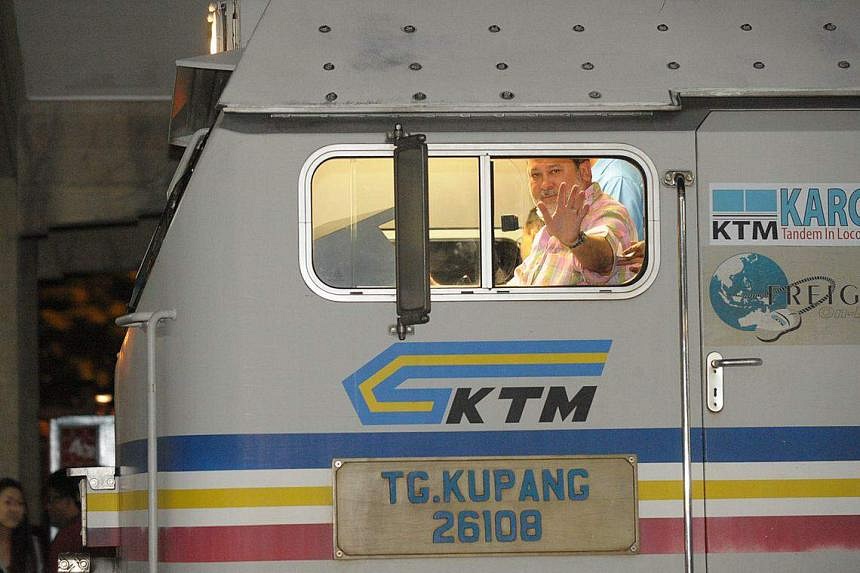
A keen sailor and motorist, Sultan Ibrahim is equally adept at maintaining cars and boats, and is licensed to fly planes and drive trains.
He piloted the last Malayan Railway train out of Tanjong Pagar before the land was handed over to Singapore in 2011 and plans to man the controls for the first Rapid Transit System (RTS) Link trip when the Johor Bahru-Singapore shuttle service kicks off in 2027.
He has put in an early personal request to Mr Seah Moon Ming, chairman of SMRT, Malaysia’s partner in operating the RTS Link.
“I’ve already told Mr Seah… I want to drive the first car.”
Credits
We would like to give credit and express our gratitude to the original authors of this article –
No ‘puppet king’: Sultan of Johor set to voice his views as Malaysia’s next monarch
We value and respect the hard work, dedication, and research that went into creating this article. By featuring it on our website, we aim to provide our readers with valuable information and insights from reputable sources.
We encourage our visitors to visit https://www.straitstimes.com/ to explore more of their outstanding articles and support their exceptional journalistic endeavors.
Thank you, https://www.straitstimes.com/, for your contribution to informing and enlightening readers around the world.
Link to original article:
https://www.straitstimes.com/asia/se-asia/no-puppet-king-sultan-of-johor-set-to-voice-his-views-as-malaysia-s-next-monarch

